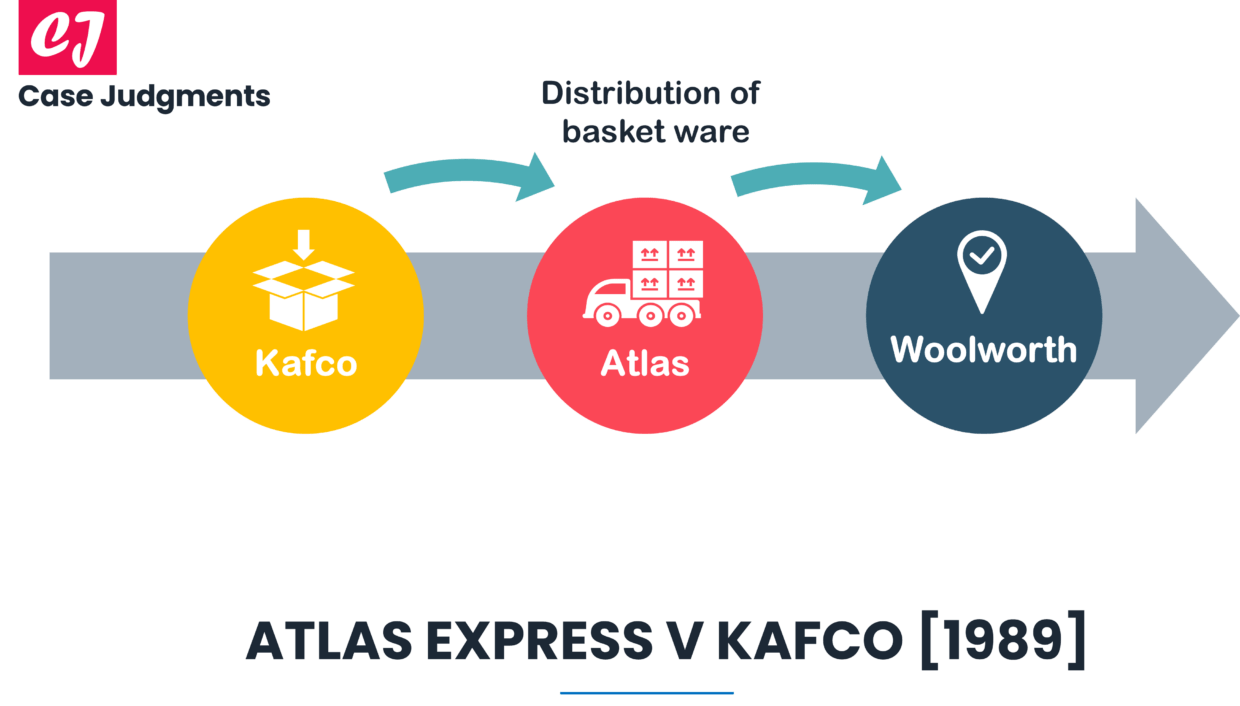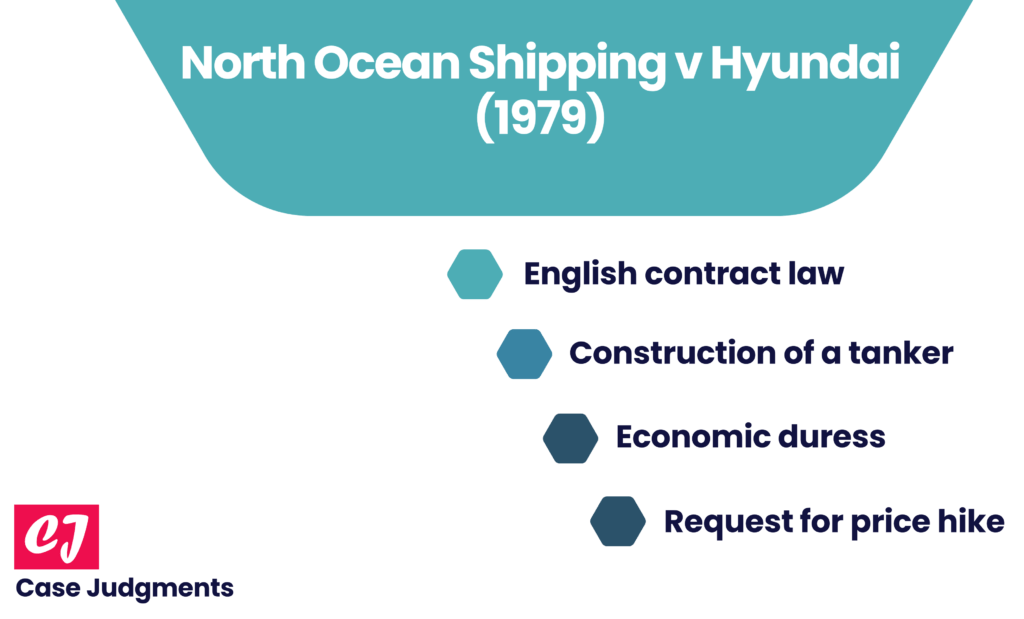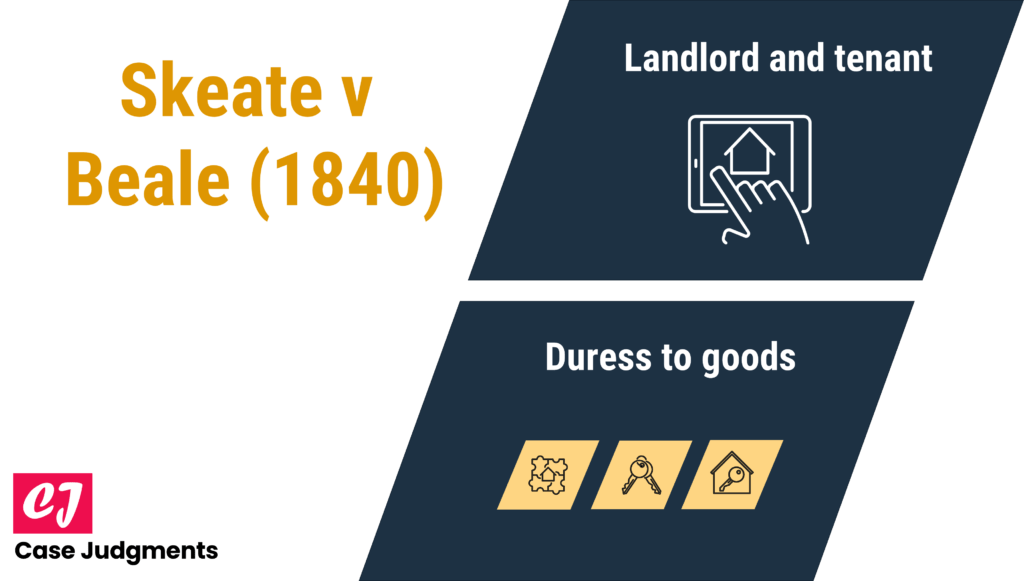
Atlas Express v Kafco [1989]: Facts and Decision
Case name & citation: Atlas Express Ltd v Kafco (Importers and Distributors) Ltd [1989] 1 All ER 641; [1989] QB 833; [1989] 3 WLR 389
- Year of the case: 1989
- Court and jurisdiction: High Court, England and Wales
- The learned judge: Tucker J
- Area of law: Economic duress
What is the case about?
This is a contract law case that deals with economic duress.
Facts of the case (Atlas Express v Kafco)
The plaintiff came to an agreement with the defendant for delivering basket ware to the Woolworth chain of stores at a price of 1.10 pounds per carton. However, the plaintiff afterward realized that the pricing was uneconomical and attempted to negotiate a minimum charge of 440 pounds per trailer load. The minimum charge was not agreed upon.
Atlas Express, the plaintiff, was a reputable carrier in the United Kingdom, while Kafco, the defendant, was a small manufacturer of basket ware that had received a huge order from Woolworth.
The defendant’s ability to deliver goods to Woolworth on time was crucial for the defendant’s economic survival. It would have been challenging, if not impossible, for the defendant to find a substitute carrier in time to fulfill delivery deadlines.
When the driver of the plaintiff came to collect the goods, he carried a document (the updated contract) with the minimum charge of 440 pounds per trailer load printed on it. The driver threatened that if the defendant did not sign the updated contract, the trailer would be taken away empty & unloaded.
The defendant made vain attempts to get in touch with the plaintiff’s manager. The defendant signed the updated contract because he reasonably believed that it would be extremely challenging, if not impossible, to find and engage a new carrier.
If the defendant hadn’t been able to provide the items, Woolworth would have filed a lawsuit. Because of the plaintiff, the defendant was “over a barrel.”
Kafco later declined to pay the additional money to Atlas Express, citing economic duress.
The plaintiff filed a lawsuit to recover the greater amount that was supposedly due under the “updated contract.”
Issue raised
The Court had to decide whether the defendant was obligated to the “updated contract” or not.
Judgment of the Court in Atlas Express v Kafco
The judge ruled that the “updated contract” was not binding for two reasons: economic duress and a lack of consideration.
The judge said:
I find that the defendant’s apparent consent to the agreement was induced by pressure which was illegitimate and I find that it was not approbated. In my judgment, that pressure can properly be described as economic duress which is a concept recognized by English law and which, in the circumstances of the present case, vitiates the defendant’s apparent consent to the agreement.
In any event, I find that there was no consideration for the new agreement. The plaintiffs were already obliged to deliver the defendant’s goods at the rates agreed upon under the terms of the original agreement. There was no consideration for the increased minimum charge of 440 pounds per trailer.
It was noted that Kafco was a small business that would have been financially disrupted had Atlas Express, the larger business, been allowed to demand the additional payment. Kafco had practically no choice but to agree, under economic duress, to pay Atlas Express since they wanted to keep their contract with Woolworths, had hired more employees, and had increased their operating capacity to produce the necessary quantity.
Thus, it was decided that because the agreement for the extra money was made under duress, hence it was not binding.
Conclusion
The defendants won on both grounds of economic duress and consideration.
However, some critics contend that if the plaintiff had not acted so improperly, the outcome of Atlas Express v. Kafco would have been different. There was bad faith in the plaintiff’s behaviour in sending the truck and threatening to drive it away empty if the variation in contract rate was not agreed to. If they were aware of their underquoting and explained their circumstances & business point of view, it might be argued that the variation in the contract rate was attributed to commercial pressure and not economic duress.
List of references:
- https://www.hzu.edu.in/uploads/2020/10/97-contract-law-willan-publishing-2007.pdf
- http://classic.austlii.edu.au/au/journals/AUConstrLawNlr/1989/123.pdf
- https://www.studocu.com/en-nz/document/victoria-university-of-wellington/the-law-of-contract/economic-duress-notes-for-exam/36793607
You might also like:
More from contract law:

